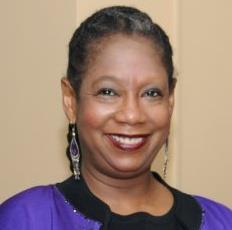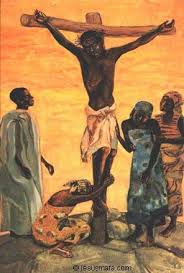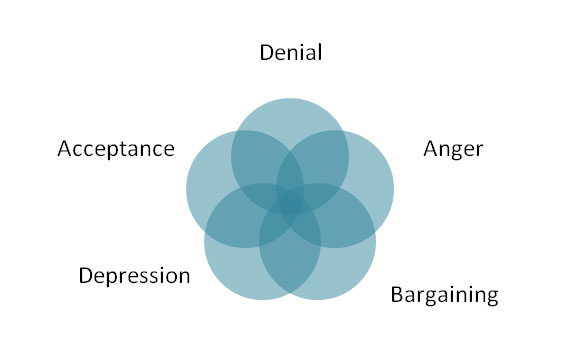 The loss of a loved one is always traumatic – be they spouse, sibling, friend, even a pet. But what do you do when the loss you’re grieving is your church? The socio-economic, demographic, and political conditions that made post-WW II church-life possible are truly a thing of the past, and in the coming years millions of Christians in the United States will have to confront this new death – the death of denominations. In her poignant post, Networker for the insurgent Lutheran group #decolonizeLutheranism, reflects on how her travels and conversations with worried church-goers have turned her into a grief counselor for the mourners of a dying church. Read, comment, and share.
The loss of a loved one is always traumatic – be they spouse, sibling, friend, even a pet. But what do you do when the loss you’re grieving is your church? The socio-economic, demographic, and political conditions that made post-WW II church-life possible are truly a thing of the past, and in the coming years millions of Christians in the United States will have to confront this new death – the death of denominations. In her poignant post, Networker for the insurgent Lutheran group #decolonizeLutheranism, reflects on how her travels and conversations with worried church-goers have turned her into a grief counselor for the mourners of a dying church. Read, comment, and share.
Rev. Dr. Linda E. Thomas – Professor of Theology and Anthropology, Chair of LSTC’s Diversity Committee, Editor – “We Talk. We Listen.”

“Why do you want to kill the church I love so much?”
“Why do you want me to feel bad about being white?”
“I don’t like the word ‘decolonize.’ We’re all one in Christ.”
“If we decolonize, that means we’re just handing over power to anyone. I don’t like that.”
These are some of the questions and statements I’ve received in my travels talking about #decolonizeLutheranism. My travels have taken me across the United States to congregations, ELCA educational institutions, small group discussions outside congregational settings, and clergy gatherings. I have met with such a wide spectrum of individuals: laity, clergy, those invested in theological education, and those curious about this new movement that is just over one year old. I usually go into a space to facilitate discussions and answer questions about the movement. But with such pointed questions and statements, I realize that I am not a facilitator. I am not present to answer questions.
Instead, I am a grief counselor.

I am accompanying people to the foot of the cross. I am accompanying people to the tomb. I am moving with people from Good Friday to a vigil in angst and anticipation. I find myself sitting with people in the valley of the shadow of death. I move with many people through the stages of grief because the church as it once was… is changing. As much as many of us claim that we welcome change, change makes us uneasy, uncomfortable, and unsettled. Change brings about the death of what once was. As followers of Christ, we are a people of death, but to experience death is painful. It is complicated. And it brings about endings of what once lived.
Grief does bizarre things to people. When my father died, my emotions shifted drastically from moment to moment. At one moment, I could be laughing with a family member while recalling a comical incident that involved my father. At the very next moment, though, I could be engaged in a shouting match with that very same family member, arguing over how to converse with a distant relative that had their own issues with the death that took place in our lives. Over the course of one day, I could encounter any of the five stages of the Kübler-Ross model of grief. Denial. Anger. Bargaining. Depression. Acceptance. All of these are valid reactions in encountering the shock and perceived permanence of death.

I recall that anger was one of the more prevalent stages in where I felt stuck. I couldn’t move. I couldn’t process. I couldn’t think rationally. I could, however, lash out and pass that anger on to other people. I could feel incredible anger and rage over the loss I was experiencing with the gaping hole produced by death. Because I could not work through this immense loss, I instead found myself giving into the visceral emotion of anger, not ready to let go of the person who was formative in shaping the individual I am today. It is a similar anger that I encounter in my siblings in Christ today who are confused and perplexed over these potential changes within our church body. These changes are not simply to make room and to create space, but to work for radical love and action to move into palliative care. But with that move to palliative care, even with the discussion of palliative care, comes the reactionary response.
“Isn’t there anything more we can do?”
“What are other life-saving measures we can take?”
“I hate you, hospice provider. Your presence means that everything will come crashing down and this will all end.”
The cry that has troubled me the most is being equated to a murderer. That my existence and the existence of the co-conspirators is to abruptly end the life of the church that they have come to know it. I’ve been the focal point of much anger, being involved in heated and heightened discussions on the existence of #decolonizeLutheranism. If we are to have open and honest conversations about the diversity of God’s creation and the potential for God’s collective body as the ones who are called out into the world, the ekklesia, then the current state of the denomination will have to come to pass. Something must change, and within that change, the presence of death looms near. Part of sensing the change, sensing the presence of death, is talking about denial and what is revealed to us when our hardened hearts are cracked open.

One of the difficult aspects of grief counseling is truth telling. No one wants to hear that their loved one is dying. No one wants to hear they are contributing to the demise of their beloved. When I lead discussions and conversations on #decolonizeLutheranism, I often talk about the isms and phobias that plague not just our church, but also the broken world in which we inhabit. I talk openly and honestly about whiteness. I talk about white supremacy. I use the word “white” a lot. I then tell the mostly white communities to sit with this discomfort and unease, much like sitting at the bedside of a beloved under palliative care.
The church is a living and breathing being filled with the moves of the Spirit. The church, in its nearly 2,000 years of existence, has gone through an incredible amount of change. The church has experienced so much death and resurrection, but with death comes intense grief. Jesus’ disciples were so overcome with grief that they weren’t even present at the crucifixion. The women at the foot of the cross lamented and mourned. The two disciples who walked the road to Emmaus were grieving. We must remember that it is biblical to grieve.
But it is also biblical to die.

As a grief counselor, I ask people to sit with me at the foot of the cross. I ask them to accompany me to the tomb as the stone is rolled in place. I ask them to wait with me in vigil, because as a people of death, we are also a people of resurrection hope.
That day is coming.
 Rev. Tuhina Verma Rasche lives a hyphenated life as a second-generation Indian-American woman. She focuses much of her work and ministry on racial justice, dismantling white supremacy, and conversations on the complexities of identity/ identities. She is ordained in the Evangelical Lutheran Church in America (ELCA), the Networker for and co-conspirator with #decolonizeLutheranism, co-curator of a subversive online Advent devotional (#F***ThisS***/ #RendTheHeavens), and has served as a young adult mentor with The Forum for Theological Exploration. She blogs at thislutheranlife.blogspot.com and medium.com/@tvrasche and tweets at @tvrasche.
Rev. Tuhina Verma Rasche lives a hyphenated life as a second-generation Indian-American woman. She focuses much of her work and ministry on racial justice, dismantling white supremacy, and conversations on the complexities of identity/ identities. She is ordained in the Evangelical Lutheran Church in America (ELCA), the Networker for and co-conspirator with #decolonizeLutheranism, co-curator of a subversive online Advent devotional (#F***ThisS***/ #RendTheHeavens), and has served as a young adult mentor with The Forum for Theological Exploration. She blogs at thislutheranlife.blogspot.com and medium.com/@tvrasche and tweets at @tvrasche.

Pr. Rasche,
Thank you so much for your bold witness to the truth: the church is changing, growing, and dying. We need more folks who are bold enough to call themselves “grief counselors”, because death has always been a part of the Church’s story. There is no “golden age” that we can go back to–but there is a future that God is bringing to birth.
LikeLiked by 1 person
Thank you for this. We all should read it and acknowledge our part in the “rent”. Thanks again . Joanne Miller
LikeLike
Reverend Rasche,
You write so beautifully and poignantly about the future that God is birthing and the pain and death that it entails for the church in its comfort, stubbornness, and -isms. I thank God for your ministerial gifts, your prophetic truthtelling, and your work in sitting with folks in the midst of grief. What you say about the need for truth is powerful–all leaders of the church are called to this work of grief accompaniment, but can only do the work of the Spirit when they have been bold enough to speak the truth to their communities about the future of the Gospel. I pray for you and for all ministerial leaders, that we might be so filled with resurrection hope that the fear of death cannot keep us from believing in and proclaiming the promise of God’s future for life in community.
LikeLike
What a pleusare to find someone who thinks through the issues
LikeLike